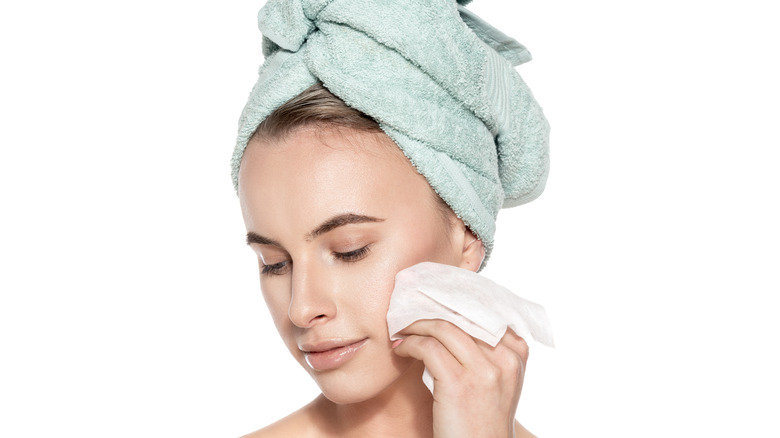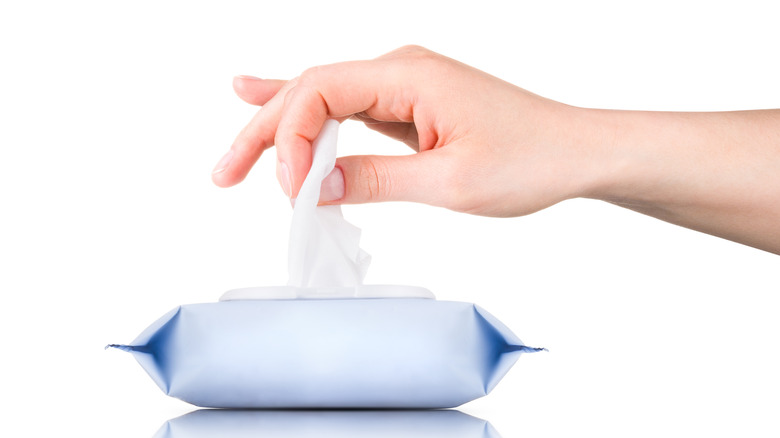What Are Makeup Remover Wipes Actually Made Out Of?
We may receive a commission on purchases made from links.
The appeal of makeup wipes is undeniable. They've been our trusty travel companions and have saved us numerous late nights when the idea of cleansing in the sink sounds nearly impossible — removing raccoon eyes and rescuing our pillows from traces of last night's lip color in the process. Let's just say these seemingly harmless towelettes have been our savior more times than we'd like to admit.
When makeup removing wipes first hit stores, no one thought twice about what was in them or their impact on our planet. But the beauty world has opened its eyes and exposed them for what they truly are: big on convenience but low on standards. This article reveals just what makeup wipes are actually made of and how they affect your skin and the environment. If you still can't break up from these bad boys, we've rounded up a few cleaner, sustainable options for you to try out.
Makeup remover wipes have ingredients that are harsh on your skin
We hate to be the bearer of bad news, but it's true, most makeup-removing wipes on the market are harmful to your skin. The issue with choosing towelette for a facial cleanser is that they don't effectively clean your skin. Makeup and dirt basically just get pushed into and around your skin. If you are using them just to remove waterproof eye makeup, there are some benefits, but the rest of your face will not be happy.
Even more, according to 100% Pure, most makeup wipes are either made from or contain non-biodegradable plastic and synthetic fibers such as polyester, polypropylene, or rayon, all of which can irritate and pull your skin. Constant downward pulling of the skin can even contribute to the appearance of wrinkles. No thanks! The ingredients in most conventional wipes are no better and may contain fragrances, chemical preservatives, alcohol, and surfactants that are drying and will not be rinsed away when you're done. Basically, the rinse step is kind of essential in the cleansing process.
Makeup remover wipes are harmful to the planet
Cleansing wipes are taking a massive toll on the environment. With millions of pounds of wipes being flushed or thrown out every year and taking a staggering 100 years for them to decompose, we should be giving this seemingly small beauty product another look (via 1 Million Women). The truth about all beauty products is that we aren't just exposing ourselves and the environment once. It's continuous and long-term. This is why bioaccumulation is important when it comes to the materials of the wipe itself and the ingredients in it. According to ScienceDirect, bioaccumulation "occurs when an organism absorbs a toxic substance at a rate greater than that at which the substance is eliminated." 100% Pure simplifies that a harmful chemical gradually builds up in a living being (animals or humans) or the environment. The living being or environment cannot get rid of this chemical as quickly as it builds up, leading to a dangerous accumulation of these compounds.
After all is said and done, let's try to leave makeup wipes for when there is no other option or just to remove stubborn makeup. Luckily, there are several fantastic alternatives to cleansing your skin without using makeup wipes. And if you must wipe, there are several responsible towelettes on the market that are clean and compostable from brands like Kaia Naturals and Simple.


